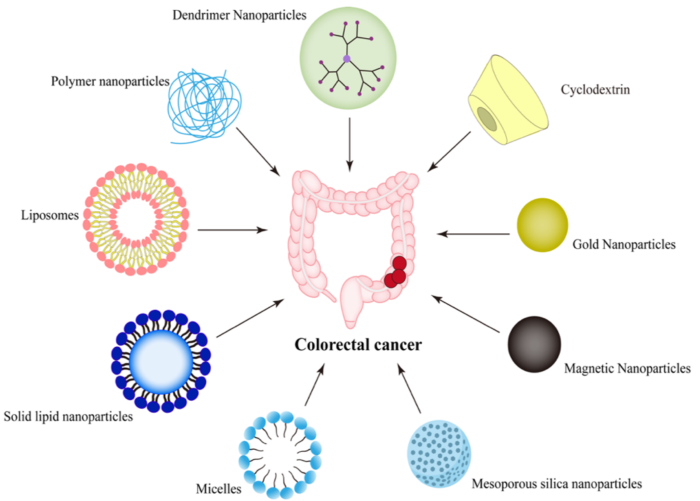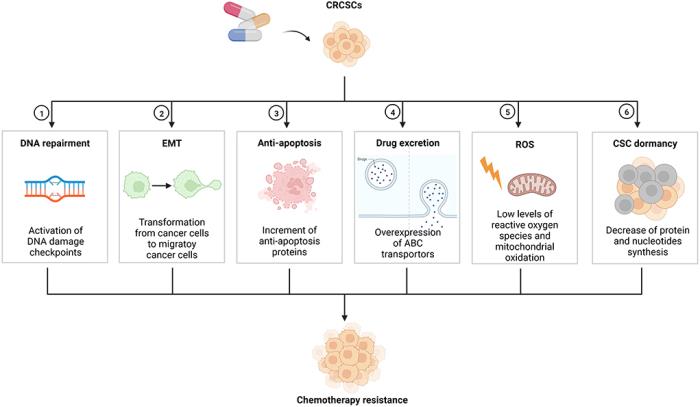Colon cancer, also known as colorectal cancer, originates in the colon or rectum and is a significant health concern globally. It is characterized by the uncontrolled growth of cells in the colon lining. The treatment landscape for colon cancer has evolved considerably, with a shift towards more personalized approaches. Traditional methods, such as surgery, chemotherapy, and radiation, are now complemented by targeted therapies that focus on specific molecular alterations in tumor cells. These advancements aim to improve patient outcomes and minimize side effects, making them a crucial component of modern oncology.
Understanding Targeted Therapy in Colon Cancer Treatment
Targeted therapy involves the use of drugs or other substances to precisely identify and attack cancer cells, while sparing normal cells. This treatment modality is based on the understanding of the molecular and genetic characteristics of tumors. In colon cancer, targeted therapies can inhibit specific pathways that promote tumor growth and survival. The goal is to enhance the efficacy of treatment and reduce the incidence of adverse effects commonly associated with conventional therapies.
Mechanisms of Action in Targeted Therapy for Colon Cancer
Targeted therapies operate through various mechanisms, including inhibition of growth factor receptors, interference with intracellular signaling pathways, and induction of apoptosis (programmed cell death). For instance, drugs targeting the EGFR (epidermal growth factor receptor) pathway can block signals that promote cancer cell proliferation. Other therapies may target the VEGF (vascular endothelial growth factor) pathway to inhibit angiogenesis, the process through which tumors develop their blood supply. Understanding these mechanisms is essential for optimizing treatment strategies.

Key Targeted Therapies for Colon Cancer: An Overview
Several targeted therapies have been approved for the treatment of colon cancer, including cetuximab and panitumumab, which target the EGFR pathway, and bevacizumab, which targets VEGF. These agents can be used in combination with chemotherapy or as monotherapy, depending on the patient's specific genetic profile and disease stage. The choice of therapy is often guided by biomarkers such as KRAS and NRAS mutations, which can predict response to treatment.
Role of Biomarkers in Targeted Therapy for Colon Cancer
Biomarkers play a crucial role in the personalization of targeted therapy for colon cancer. KRAS and NRAS mutations, commonly found in tumor samples, can indicate whether a patient is likely to respond to EGFR inhibitors. Additionally, MSI-H (microsatellite instability-high) status can predict responsiveness to immunotherapy. By analyzing these biomarkers, oncologists can tailor treatment plans that are more likely to yield positive outcomes for individual patients.
Advancements in Immunotherapy for Colon Cancer Patients
Immunotherapy has emerged as a promising treatment option for certain colon cancer patients, particularly those with MSI-H tumors. This approach harnesses the body's immune system to recognize and destroy cancer cells. Agents such as pembrolizumab and nivolumab have shown significant efficacy in clinical trials, leading to durable responses in patients with advanced disease. The integration of immunotherapy into treatment regimens represents a significant advancement in the management of colon cancer.

Combination Therapies: Enhancing Efficacy in Colon Cancer Treatment
Combination therapies, which involve the use of targeted agents alongside traditional chemotherapy or other targeted therapies, have shown promise in improving treatment outcomes for colon cancer patients. For example, the combination of bevacizumab with chemotherapy has been established as a standard treatment for metastatic colon cancer. Such strategies aim to exploit different mechanisms of action, potentially leading to enhanced tumor response and reduced likelihood of resistance.
Clinical Trials: Pioneering Research in Targeted Therapy
Clinical trials play a pivotal role in advancing targeted therapy for colon cancer. Ongoing research is exploring novel agents and combinations, with the goal of improving efficacy and safety profiles. Participation in clinical trials offers patients access to cutting-edge treatments and contributes to the overall understanding of colon cancer biology. It is essential for patients to discuss potential clinical trial options with their oncologist to determine eligibility and suitability.
Challenges and Limitations of Targeted Therapy in Colon Cancer
Despite the advancements in targeted therapy for colon cancer, several challenges remain. Not all patients respond to targeted agents, and the development of resistance can occur, limiting the long-term efficacy of these treatments. Additionally, the identification of actionable biomarkers is not always straightforward, and access to targeted therapies may be limited in certain healthcare settings. Addressing these challenges is critical for optimizing patient care and improving outcomes.
Future Directions in Targeted Therapy Research for Colon Cancer
The future of targeted therapy in colon cancer is promising, with ongoing research focusing on identifying new biomarkers, developing novel agents, and understanding the mechanisms of resistance. Advances in genomics and personalized medicine are expected to lead to more tailored treatment approaches, enhancing the effectiveness of targeted therapies. Furthermore, integrating targeted therapies with other treatment modalities, such as immunotherapy, holds the potential for improved patient outcomes.
Patient-Centric Approaches in Targeted Therapy for Colon Cancer
Patient-centric approaches are increasingly important in the management of colon cancer. Engaging patients in shared decision-making regarding treatment options, including targeted therapies, can enhance adherence and satisfaction. Providing education about the potential benefits and risks of treatments empowers patients to make informed choices. Additionally, addressing psychosocial aspects of care, such as emotional support and counseling, is vital for comprehensive patient management.
Cost Considerations and Accessibility of Targeted Therapy in India
The cost of targeted therapies can be a significant concern for colon cancer patients in India. While these treatments often offer improved outcomes, their high price may limit accessibility for many patients. Healthcare providers must navigate these challenges by discussing financial options, including insurance coverage and assistance programs. Increasing awareness among patients about available resources is essential for ensuring equitable access to these innovative therapies.
Role of Multidisciplinary Teams in Managing Colon Cancer
The management of colon cancer, particularly with the integration of targeted therapies, requires a multidisciplinary approach. Oncologists, surgeons, radiologists, pathologists, and supportive care providers must collaborate to develop comprehensive treatment plans. This teamwork ensures that all aspects of patient care, including diagnosis, treatment, and follow-up, are addressed effectively. A coordinated approach enhances the overall quality of care and improves patient outcomes.
Importance of Patient Education in Targeted Therapy for Colon Cancer
Patient education is crucial in the context of targeted therapy for colon cancer. Understanding the mechanisms, potential benefits, and side effects of targeted agents enables patients to engage actively in their treatment journey. Educational initiatives should include information about the role of biomarkers, the significance of adherence to therapy, and the importance of follow-up care. Empowering patients through education fosters better communication with healthcare providers and enhances treatment adherence.
Monitoring and Follow-Up Care for Colon Cancer Patients on Targeted Therapy
Continuous monitoring and follow-up care are essential for colon cancer patients receiving targeted therapy. Regular assessments, including imaging and laboratory tests, help evaluate treatment efficacy and detect potential side effects. Oncologists should establish a follow-up schedule tailored to the individual patient's treatment plan. This proactive approach allows for timely interventions in case of complications and ensures that patients receive optimal care throughout their treatment journey.
Psychosocial Support for Colon Cancer Patients Undergoing Targeted Therapy
Patients undergoing targeted therapy for colon cancer often face emotional and psychological challenges. Providing psychosocial support, including counseling and support groups, can help patients cope with the stress associated with their diagnosis and treatment. Addressing mental health needs is an integral part of comprehensive cancer care, as it can improve treatment adherence and overall quality of life. Healthcare providers should be vigilant in recognizing and addressing these needs throughout the treatment process.
Real-World Evidence Supporting Targeted Therapy in Colon Cancer
Real-world evidence (RWE) is increasingly recognized as a valuable source of information regarding the effectiveness of targeted therapies in colon cancer. Studies utilizing RWE can provide insights into treatment outcomes in diverse patient populations outside of clinical trials. This information is essential for understanding how targeted therapies perform in everyday clinical practice and can help inform treatment guidelines and decision-making processes.
Role of Minimally Invasive Surgery in Colon Cancer Treatment
Explore the growing importance of minimally invasive surgery in colon cancer treatment. Techniques like laparoscopy and robotic-assisted surgery offer shorter hospital stays, quicker recovery, and less post-operative discomfort compared to open surgeries. This article sheds light on how these methods are enhancing patient care and treatment outcomes.
Comparing Robotic Surgery and Traditional Surgery for Colon Cancer
Understand the differences between robotic surgery and traditional surgery for colon cancer treatment. Robotic surgery offers precision, reduced recovery time, and smaller incisions, while traditional surgery remains a viable option in certain cases. This comparison highlights the benefits, risks, and suitability of each approach, helping patients make informed decisions about their care.
Global Perspectives on Targeted Therapy for Colon Cancer
Globally, the approach to targeted therapy for colon cancer varies based on healthcare systems, access to medications, and patient demographics. Countries with advanced healthcare infrastructure often have broader access to innovative therapies, while those with limited resources may face challenges in implementing these treatments. Understanding these global perspectives can inform strategies to improve access and equity in colon cancer care, ensuring that all patients benefit from advancements in targeted therapy.
Best Colon Cancer Treatment in India
The Best Colon Cancer Treatment in India includes advanced procedures such as minimally invasive surgery, chemotherapy, and targeted therapies to achieve the best outcomes for patients.
Colon Cancer Treatment Cost in India
The colon cancer treatment cost in india is competitive, providing patients with affordable access to high-quality care and innovative treatment options.
Best Colon Cancer Specialists in India
The Best Colon Cancer Specialists in India bring years of expertise in diagnosing and treating colon cancer, ensuring personalized treatment plans and compassionate care for every patient.
FAQs about Advances in Targeted Therapy for Colon Cancer Patients
What is targeted therapy for colon cancer?
Targeted therapy refers to treatments that specifically target molecular changes in cancer cells. In colon cancer, these therapies aim to inhibit pathways that promote tumor growth, improving treatment outcomes.
How do I know if I am a candidate for targeted therapy?
Eligibility for targeted therapy often depends on the presence of specific biomarkers in your tumor. A discussion with your oncologist about biomarker testing is essential to determine candidacy.
What are the potential side effects of targeted therapy?
Side effects can vary depending on the specific agent used but may include skin rashes, gastrointestinal issues, and fatigue. It is crucial to discuss potential side effects with your healthcare provider.
Are there clinical trials available for targeted therapy in colon cancer?
Yes, many clinical trials are ongoing that explore new targeted therapies and combinations for colon cancer. Your oncologist can provide information on available trials and eligibility criteria.
How can I access targeted therapy in India?
Access to targeted therapy in India may vary based on healthcare facilities and insurance coverage. Discussing options with your healthcare provider can help identify accessible treatment pathways.
Discover the Best Oncologists and Cancer Hospitals in India
When it comes to cancer treatment, finding the right specialist and hospital can make a significant difference in the outcome. In this blog, we have compiled a list of the top oncologists and cancer hospitals across major cities in India, ensuring that you have access to the best care available.
Top Oncologists in Major Cities
For those seeking expert oncologists, we have identified the best specialists in key cities:
Leading Cancer Hospitals
In addition to finding the right specialist, choosing the right hospital is crucial for comprehensive cancer care. Here are the top hospitals in major cities:
Get more indepth information on Cancer treatments and their costs
Conclusion
Finding the right oncologist and hospital is the first step in your cancer treatment journey. Explore the links above to learn more about the top specialists and hospitals in your area.